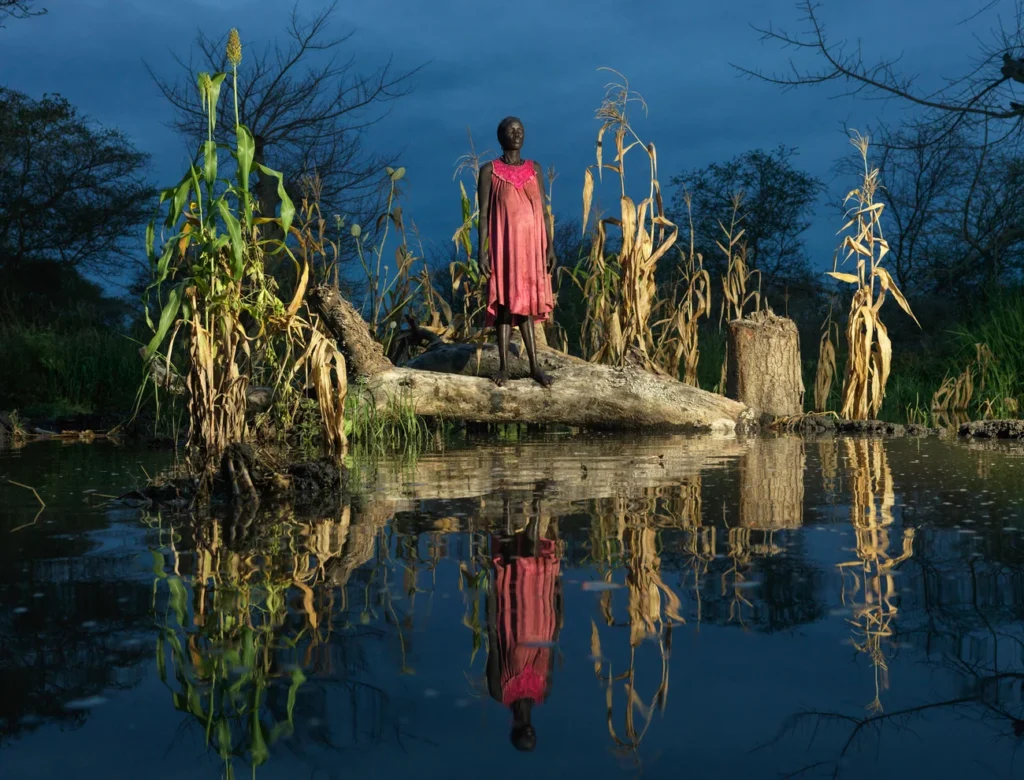The climate crisis in South Sudan, characterized by floods, droughts, and food insecurity worsening each year, demands both local action and global support.
As global leaders, scientists, and campaigners gather in Belém, Brazil, this November for the 30th United Nations Climate Change Conference (COP30), South Sudan stands as a sobering example of how climate change is already rewriting lives and livelihoods.
Although South Sudan contributes almost nothing to global greenhouse gas emissions, it ranks among the most climate-vulnerable countries. The effects are already visible in flooded villages, failed crops, dying livestock, and hunger. For millions of South Sudanese, climate change is not a future threat — it is today’s daily reality.
Across the country, floods and droughts now strike with alarming frequency. Rising waters have displaced thousands, while prolonged dry spells ruin harvests and dry up grazing lands.
The World Food Program (WFP) warns that “7.7 million people, more than half the population, were acutely food insecure” due to conflict, economic hardship, and climate shocks.
UNICEF estimates that over two million children under five were likely to suffer from acute malnutrition in 2025, a figure that underscores the growing crisis. In its latest brief, UNICEF notes that “climate shocks, disease outbreaks, and displacement continue to worsen child nutrition outcomes.”
By October 2025, the UN Office for the Coordination of Humanitarian Affairs (OCHA indicated that some 335,000 people had been displaced across 16 counties, many seeking refuge on higher ground. The flooding further compounds an already critical humanitarian situation characterized by acute food insecurity, conflict, and disease outbreaks. Many have been forced to move multiple times as rising waters wash away homes and farmlands. Humanitarian officials describe it as “one of the most climate-affected displacement crises in East Africa”.
The Intergovernmental Panel on Climate Change (IPCC) confirms that East Africa is likely to experience more intense and unpredictable rainfall as temperatures rise. This means more flooding in some areas, but also prolonged droughts in others, a double blow for farmers and herders already struggling to survive.
South Sudan’s climate crisis is closely linked with its broader humanitarian challenges. Repeated flooding and drought have intensified competition for land and water, fueling conflicts between farmers and pastoralists.
OCHA describes climate change as a “threat multiplier” that makes peace and recovery harder to sustain. In many communities, environmental stress pushes people into poverty and displacement, deepening existing tensions.
Despite limited resources, South Sudan can still take important steps to adapt and build resilience:
1. Expand early warning systems: Radio and mobile alerts can help farmers and pastoralists prepare for floods and droughts before disaster strikes.
2. Invest in climate-smart agriculture: Promoting drought-tolerant seeds, small-scale irrigation, and better post-harvest storage can reduce losses and boost yields.
3. Restore wetlands and forests: Protecting natural floodplains and replanting trees along rivers can prevent soil erosion and absorb excess rainfall.
4. Link humanitarian aid with resilience: WFP’s “food-for-assets” approach, where communities build dykes and roads while receiving food assistance, helps reduce future vulnerability.
5. Implement the National Adaptation Plan (NAP): NAP identifies priority sectors such as agriculture, water, and disaster management, but implementation needs funding and technical support.
As negotiations begin in Brazil, South Sudan should use the global platform to demand climate justice and fair access to finance. Key priorities include:
- More predictable and accessible climate finance for adaptation and resilience in fragile settings.
- Operationalizing the Loss and Damage Fund, ensuring real support for people who have already lost homes and livelihoods.
- Technology transfer and capacity building to strengthen national weather forecasting, data collection, and early warning systems.
- Simplified funding processes so that small and developing nations like South Sudan can access global climate funds quickly.
South Sudan’s climate crisis is a powerful reminder that the world’s most climate vulnerable are paying the highest price for global warming. As negotiations in Belém focus on emission cuts and funding pledges, the stories from Bentiu, Bor, and Rumbek must not be forgotten.
For families who have lost everything to floods or drought, climate change is not an abstract debate; it is survival.
As one humanitarian worker in Unity State put it, “Climate change is not coming, it’s already here. What we need now is not sympathy, but support.”
COP30 is an opportunity for world leaders to turn promises into action, not tomorrow, but today.
The writer, Simon Kuony Jial, can be reached via kuonyjial@gmail.com.
The views expressed in ‘opinion’ articles published by Radio Tamazuj are solely those of the writer. The veracity of any claims made is the responsibility of the author, not Radio Tamazuj.




